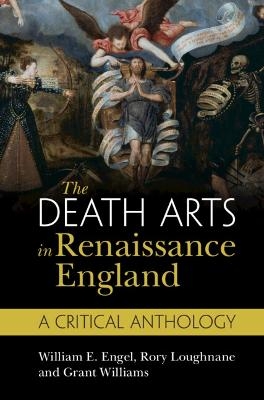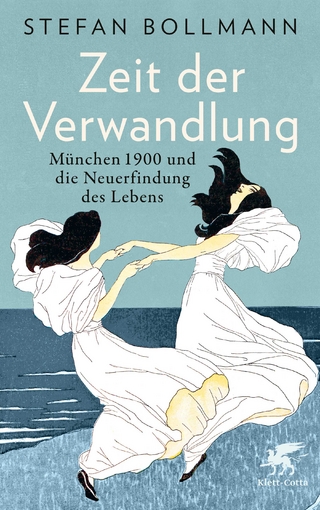
The Death Arts in Renaissance England
Cambridge University Press (Verlag)
978-1-108-47927-1 (ISBN)
The first-ever critical anthology of the death arts in Renaissance England, this book draws together over 60 extracts and 20 illustrations to establish and analyse how people grappled with mortality in the 16th and 17th centuries. As well as providing a comprehensive resource of annotated and modernized excerpts, this engaging study includes commentary on authors and overall texts, discussions of how each excerpt is constitutive and expressive of the death arts, and suggestions for further reading. The extended Introduction takes into account death's intersections with print, gender, sex, and race, surveying the period's far-reaching preoccupation with, and anticipatory reflection upon, the cessation of life. For researchers, instructors, and students interested in medieval and early modern history and literature, the Reformation, memory studies, book history, and print culture, this indispensable resource provides at once an entry point into the field of early modern death studies and a springboard for further research.
William E. Engel is the Nick B. Williams Professor of Literature at the University of the South, Sewanee. He is the author of five books on literary history, memory studies and applied emblematics, including Mapping Mortality (1995), Death and Drama in Renaissance England (2002), and co-editor of The Memory Arts in Renaissance England (Cambridge, 2016). He is on the editorial board of Renaissance Quarterly and is the Renaissance Society of America's Discipline Representative for Emblems. Rory Loughnane is Reader in Early Modern Studies and Co-Director of the Centre for Medieval and Early Modern Studies at University of Kent. He is the author or editor of eight books, including, most recently, Early Shakespeare, 1588–1594 (Cambridge UP, 2020) and The Death Arts in Renaissance England (Cambridge UP, 2022). He is a General Editor of The Oxford Marlowe, a General Editor of The Revels Plays series for Manchester UP, an Associate Editor of the New Oxford Shakespeare, and a Series Editor of Routledge's Studies in Early Modern Authorship and Cambridge's Shakespeare and Text. He was awarded the 2019 Charles and Rose G. Hoffman Prize for distinguished work in Marlowe studies. Grant Williams is an Associate Professor of English at Carleton University. He has co-edited four collections: Forgetting in Early Modern English Literature and Culture: Lethe's Legacies (2004), Ars reminiscendi: Memory and Culture in the Renaissance (2009), Taking Exception to the Law: Materializing Injustice in Early Modern English Literature (2015), and The Memory Arts in Renaissance England: A Critical Anthology (Cambridge, 2016). He is currently working on an introduction to an edition of Henry Chettle's Kindheart's Dream and Piers Plainness and a SSHRC funded project to study 16th and 17th century emblematic title pages.
Part I. Preparatory and dying Arts: I.1. To know well to die (1490); I.2. The Calendar of Shepherds (1518); I.3. The way of dying well (1534); I.4. The Lamentation of a Sinner (1547); I.5. 'A Meditation of a penitent Sinner' (1560); I.6. A Fruitful treatise…against the fear of Death (1564); I.7. A Spiritual Consolation (1578); I.8. The repentance of Robert Greene (1592); I.9. A Salve for a Sick Man (1595); I.10. The Mother's Blessing (1616); I.11. Selected Works (1628, 1635); I.12. 'The unnatural Wife' (1628); I.13. An antidote against purgatory (1634); I.14. Holy dying (1651); I.15. The virgin's pattern (1661); I.16. A Token for Children (1676); I.17. 'A True account of…last dying speeches' (1690); Part II. Funereal and Commemorative Arts: II.1.Chronicles (1548); II.2. 'The Order for the burial of the dead' (1549); II.3. The Primer set forth at large (1559); II.4. Acts and Monuments (1576); II.5. The Glorious Martyrdom of twelve Priests (1582); II.6. The life and death of Sir Philip Sidney (1587); II.7. The French History (1589); II.8. 'Doleful Lay of Clorinda' (1595); II.9. Selected Works (1603, 1604); II.10. 'A Mirror of Modesty' (1621); II.11. 'A Sermon…the 5th of November, 1606' (1629); II.12. The Phoenix of these late times (1637); II.13. Eikon Basilike (1649); II.14. 'An Elegy on the Lady Markham' (1653); II.15. A String of Pearls (1657); II.16. Poems (1669); II.17. 'An Essay upon Death' (1696); Part III. Knowing and Understanding Death: III.1. The despising of the World (1532); III.2. A Preservative against Death (1545); III.3. A Godly Meditation (1548); III.4. A Mirror for Magistrates (1587); III.5. The Haven of Health (1588); III.6. Protection for Woman (1589); III.7. Montaigne's Essays (1603); III.8. The Works of Seneca (1614); III.9. Navmachia (1622); III.10. 'Of Death' (1625); III.11. Mikrokosmographia (1631); III.12. 'A View of the present State of Ireland' (1633); III.13. A View of all Religions in the World (1653); III.14. Natural and Political Observations (1662); III.15. Philosophical Letters (1664); III.16. Lucretius's Six Books (1683); III.17. Principles of the most Ancient and Modern Philosophy (1692); Part IV. Death Arts in Literature: IV.1. The Ship of Fools (1509); IV.2. The Summoning of Everyman (1528); IV.3. The Dance of Death (1554); IV.4. 'Complaint of a Dying Lover' (1557); IV.5. 'A Strange Punishment' (1566); IV.6. 'Gascoigne's Goodnight' (1573); IV.7. 'The Manner of her Will' (1573); IV.8. The Mirror of Princely deeds and Knighthood (1578); IV.9. Selected Works (1594, 1604); IV.10. Selected Works (1606, 1614); IV.11. Salve Deus Rex Judaeorum (1611); IV.12. Selected Works (1611, 1613); IV.13. The Tragedy of Mariam (1613); IV.14. Urania (1621); IV.15. 'The last Will and Testament of Philip Herbert' (1650); IV.16. 'The Nymph complaining for the death of her Fawn' (1681); IV.17. Oroonoko (1688).
| Erscheinungsdatum | 07.09.2022 |
|---|---|
| Zusatzinfo | Worked examples or Exercises |
| Verlagsort | Cambridge |
| Sprache | englisch |
| Maße | 158 x 234 mm |
| Gewicht | 780 g |
| Themenwelt | Geschichte ► Allgemeine Geschichte ► Neuzeit (bis 1918) |
| Geisteswissenschaften ► Sprach- / Literaturwissenschaft ► Anglistik / Amerikanistik | |
| Geisteswissenschaften ► Sprach- / Literaturwissenschaft ► Literaturwissenschaft | |
| Sozialwissenschaften ► Soziologie ► Gender Studies | |
| ISBN-10 | 1-108-47927-8 / 1108479278 |
| ISBN-13 | 978-1-108-47927-1 / 9781108479271 |
| Zustand | Neuware |
| Informationen gemäß Produktsicherheitsverordnung (GPSR) | |
| Haben Sie eine Frage zum Produkt? |
aus dem Bereich


